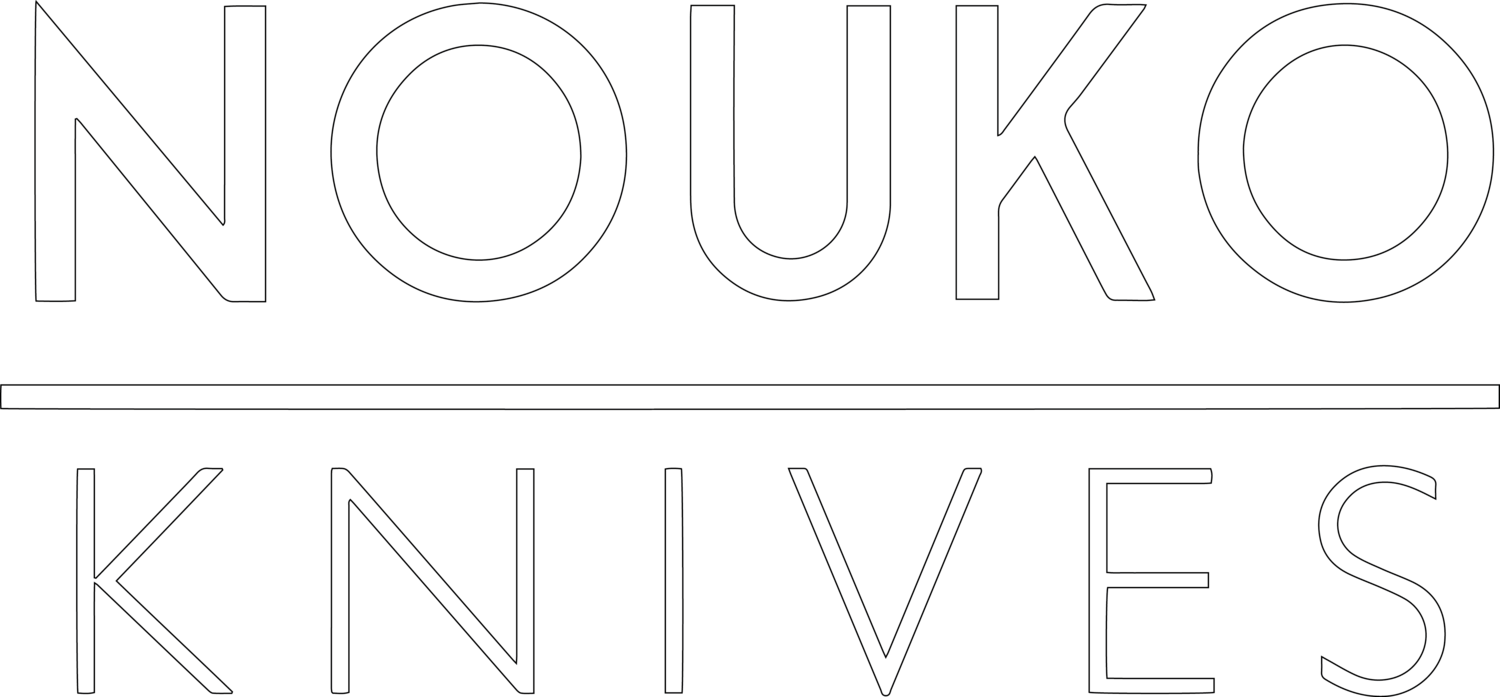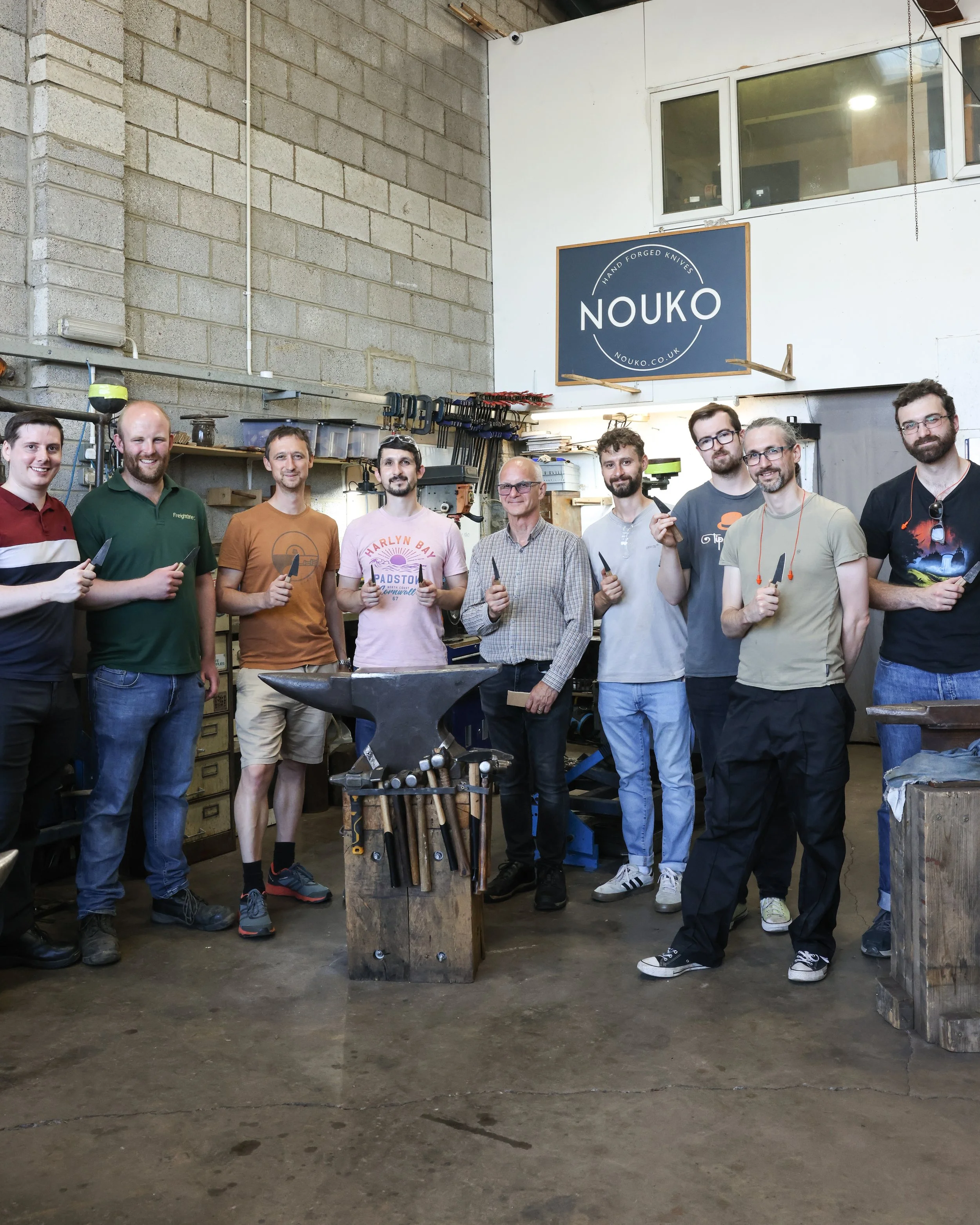Pair-Up: Forge a Small Utility Knife – Team Building Workshop in Bristol
Pair-Up: Forge a Small Utility Knife – Team Building Workshop in Bristol
Duration: 5 hours (12:30 PM – 5:30 PM)
Location: Nouko Knives Workshop, Lawrence Hill Industrial Park, Bristol
Group Size: 8–16 participants (working in pairs)
Price: £90 per person (minimum booking of 8 participants)
Experience Level: No prior experience required
What You’ll Take Home: A handcrafted high-carbon utility knife with a pre-made hardwood handle
Ideal For: Corporate team building, group experiences, and unique hands-on activities
Course Overview
Looking for a unique and engaging team-building activity in Bristol? Our Pair-Up: Forge a Small Utility Knifeworkshop offers an immersive bladesmithing experience that combines craftsmanship, collaboration, and creativity. Over the course of five hours, participants will work in pairs to forge, heat-treat, and finish their own utility knives under expert guidance.
What You’ll Learn and Do
Blade Forging: Heat high-grade steel billets and shape them using traditional hammer and anvil techniques.
Heat Treatment: Learn the processes of annealing, hardening, and tempering to enhance blade durability.
Profiling: Observe the transformation of forged billets into knife shapes using belt grinders.
Handle Attachment: Attach pre-made hardwood handles (oak, elm, beech, or mahogany) using fast-setting epoxy resin.
Sharpening and Stropping: Understand bevel creation and achieve razor-sharp edges through stropping techniques.
Knife Maintenance: Gain insights into proper knife care, including sharpening, cleaning, and storage.
Note: For safety and quality, certain steps like edge grinding will be performed by the instructor.
Team Building Benefits
Collaboration: Working in pairs fosters communication and teamwork.
Skill Development: Participants gain hands-on experience in a traditional craft.
Memorable Experience: Create lasting memories and tangible results—a custom-made knife.
Unique Setting: Step away from the usual office environment into a dynamic workshop atmosphere.
Booking Information
Private Bookings: Ideal for corporate events or special occasions. Contact us to arrange a suitable date.
Group Size: Accommodates up to 16 participants (8 pairs). Minimum booking of 8 participants required.
Attire: Wear natural legwear (e.g., jeans) and sturdy leather shoes. All protective equipment is provided.
Arrival: Please arrive on time. Late arrivals (beyond 15 minutes) may not be permitted due to safety protocols.
For tailored blade designs or specific handle preferences, please contact us prior to booking.






